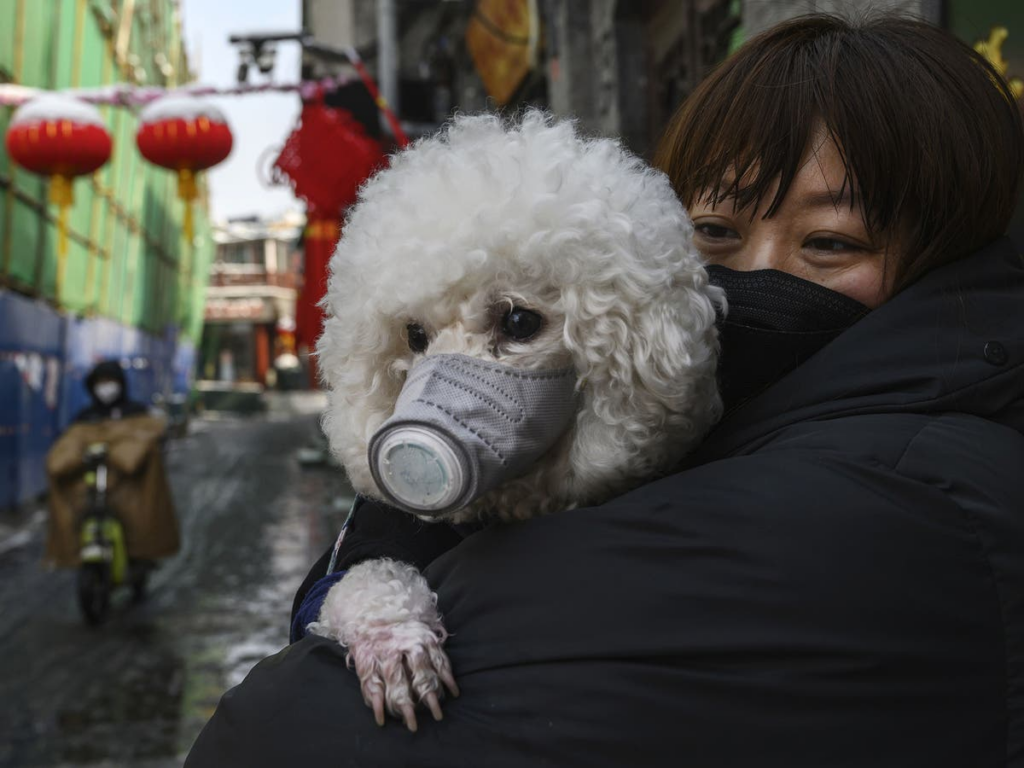Notifications can be managed in browser preferences.
Please refresh the page or navigate to another page on the site to be automatically logged inPlease refresh your browser to be logged in
A new Covid variant dubbed as Eris has emerged across the UK – here’s what we know so far
Find your bookmarks in your Independent Premium section, under my profile
A new Covid variant known as EG.5.1 has emerged across the UK and according to the government’s Coronavirus Data website, between 23 July to 29 July, there were 4,076 positive Covid cases in England.
The new strain, dubbed as Eris, was first classified as a variant in the UK on 31 July and is now the second most prevalent variant after Arcturus.
Covid is often spread from person to person, but that does not mean animals can’t also get it.
In November 2021, the UK’s Chief Veterinary Officer confirmed that the virus had been detected in a pet dog in the UK.
The infection was confirmed following tests at the Animal and Plant Health Agency (APHA) laboratory in Weybridge in November. In a press release, the government website said that “all available evidence” suggested that the dog got Covid from its owner who had previously tested positive for the virus, but added: “There is no evidence to suggest that the animal was involved in the transmission of the disease to its owners or that pets or other domestic animals are able to transmit the virus to people.”
In the press release, Chief Veterinary Officer Christine Middlemiss said: “It is very rare for dogs to be infected and they will usually only show mild clinical signs and recover within a few days.”
With the rising cases, owners are becoming increasingly concerned they could catch the deadly disease from their animals – but can pets really catch Covid?
The Centers for Disease Control and Prevention (CDC) has said on its website that Covid can indeed spread from a person to an animal – when in close contact. But has said that the risk to people is low.
The CDC has advised people to steer away from the following:
• Do not put masks on your pets, this could harm them
• Do not wipe or bathe your pets in chemical disinfectants. The CDC adds: “There is no evidence that the virus can spread to people from the skin, fur, or hair of pets. Talk to your veterinarian if you have questions about appropriate products for bathing or cleaning your pet.”
Tommy Wylde, owner of wildlife magazine Floofmania and animal enthusiast told The Independent that dogs can get Covid but it is “rare” and the symptoms are much milder than what is seen in humans.
Mr Wylde said the best way to protect your dog would be to “keep the dog away from people who are infected and to keep a high level of hygiene, especially if you, yourself are infected with covid.”
According to the CDC website, pets that do have Covid may show signs of the following symptoms:
• Fever
• Coughing
• Difficulty breathing
• Sneezing
• Low energy
• Runny nose
• Eye discharge
• Vomiting
• Diarrhea
The CDC has said if people spot these symptoms it is best to talk to a veterinarian about next steps.
Depending on the pet’s symptoms, the veterinarian may recommend that you isolate your pet at home, the CDC adds.
It is important to keep track of your pet’s condition and if things do begin to get worse, get in touch with the veterinarian as soon as possible.
The World Health Organisation says: “It is always a good idea to wash your hands with soap and water after contact with pets.
“This protects you against various common bacteria such as E.coli and Salmonella that can pass between pets and humans.”
To protect yourself from catching coronavirus, the WHO advises the following:
You can read more about the WHO’s advice on coronavirus here.
Join thought-provoking conversations, follow other Independent readers and see their replies
Want to bookmark your favourite articles and stories to read or reference later? Start your Independent Premium subscription today.
Please refresh the page or navigate to another page on the site to be automatically logged inPlease refresh your browser to be logged in
Log in
New to The Independent?
Or if you would prefer:
Want an ad-free experience?
Hi {{indy.fullName}}

